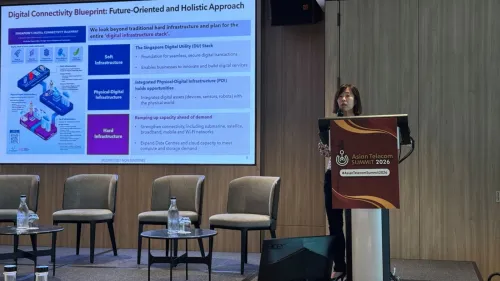
Gov’ts must prioritise digital infrastructure to meet emerging markets’ demand
EY found that 44% of adults would like to access public services seamlessly through different channels.
As emerging markets in India, Malaysia, Brazil, South Africa, and Mexico increasingly move online, a new survey reveals that there is a global demand for digital services. The EY Connected Citizens survey, based on the views of over 13,000 people in 13 countries, shows that 44% of adults in emerging markets would like to access public services seamlessly through different channels, and 66% would welcome a single digital identification (ID) when dealing with the government.
Source: EY Connected Citizens survey
Citizens in emerging economies are also more optimistic than those in developed countries about how technology can improve how they interact with public services. In Malaysia, 76% of the population holds this opinion, while in India and Brazil, 73% and 63%, respectively, believe that digital technology can improve public services.
Source: EY Connected Citizens survey
These numbers could be attributed to the young age profile of many emerging and developing markets. About 90% of people under 30 live outside developed world economies, and 40% of the workforce will be Gen Z by 2030.
According to the Connected Citizens research, these young people are far more likely to be "Diligent Strivers" - aspirational urban-dwellers who expect seamless digital government services and are keen to take advantage of what technology can offer to get ahead in life.
To meet these citizen expectations, governments in emerging markets need to improve their digital infrastructure. The good news is that this is happening - Latin America is one example. The latest UN E-Government Survey now places Argentina, Brazil, Chile, Costa Rica, and Uruguay among the world's more advanced digital economies. However, other countries need to accelerate their strategies to ensure that no one is left behind.
The health of public finances is not the only explanation for the digital divide in emerging markets. Political will, strategic leadership, and a country's ideological commitment to providing digital services also influence the speed of adoption. Countries that have these three attributes can speed up their development of digital infrastructure and services, which in turn will fuel economic development.
But, according to EY research, citizen participation is also a critical factor. The findings of the Connected Citizens survey show that there is a deep desire by citizens in emerging markets to use digital tools to access public services and connect with the government. To capitalise on this demand, governments must prioritize the development of their digital infrastructure and services.
Digital inequality persists globally
According to new figures from the International Telecommunications Union (ITU), "vast swaths" of the global population are currently excluded from the online experience. "Whilst the number of internet users surged from just a few million in the early 1990s to almost 5 billion today, 2.9 billion people remain totally offline," says the ITU's Global Connectivity Report 2022.
The report also notes that many hundreds of millions more worldwide struggle with expensive, poor-quality internet access that does little to materially improve their lives.
This inequality risks exacerbating existing imbalances and goes against the UN's Sustainable Development Goal of "reducing inequality within and amongst countries." To achieve this goal, governments will need to focus on installing robust internet infrastructure, digitalising services, and recruiting skilled public servants to fulfil these services.
According to EY Digital Leader for EU institutions, Arturas Piliponis, "You need the core enablers of digital government: connectivity, digital identity, interoperability and data registries. It's hard work, but without these coupled with a user-centric service design approach, you cannot build effective digital services and, respectively, a digital state."
To successfully transition to digital government, policymakers need to understand how digitalisation can address service shortfalls and provide the necessary aid. A successful transition also requires joined-up digital and development policymaking at both local and regional levels.
Bureaucratic and institutional silos can hinder the development of effective, integrated public e-services. Whilst individual government departments may be able to digitalise their own activities, the result is often a piecemeal, disjointed system that does not provide a satisfactory experience for users.












